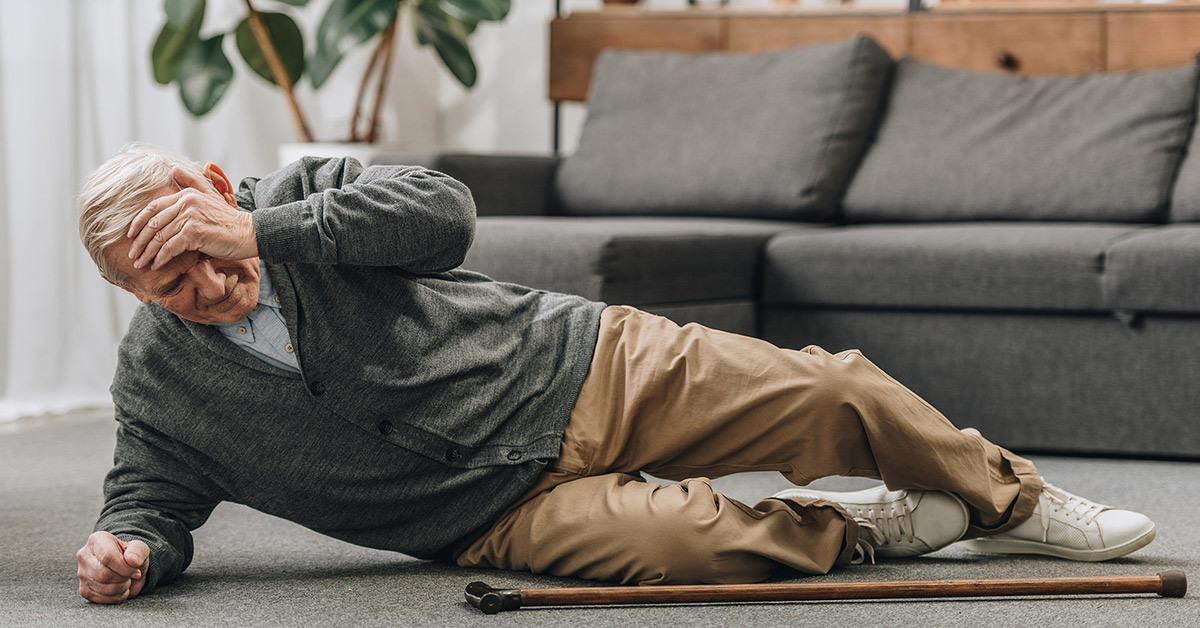Calls for Ukraine
Calls for Europe
Calls for USA

Older adults who are injured as a result of a fall are over 20 percent more likely to develop Alzheimer’s disease or another type of dementia, according to a new study published in JAMA Network Open.
A retrospective cohort study conducted by researchers at Brigham Hospital examined data from more than 2 million older adults who suffered traumatic injuries. More than 10 percent of them were diagnosed with some form of dementia within a year of the fall.
The average age of patients who suffered a fall was 78 years, with more females than males. In general, adults over the age of 65 who sustain traumatic injuries after a fall are more prone to cognitive decline.
Some types of dementia, such as Alzheimer’s disease, result from the progressive death of brain cells and neurons. The disease develops and worsens over time. But head injuries can contribute to dementia directly due to cellular damage. Certain types of head injuries – especially if they are repetitive, which can happen in some sports – can increase the risk of developing certain types of dementia in later life.
In general, loss of motor skills is part of the progression of Alzheimer’s disease. People may have difficulty with balance, are more likely to stumble or spill liquids, and have difficulty with properly orienting clothing while getting dressed.
In a press release, senior author Molly Jarman, MD, assistant professor of surgery and associate director of the Center for Surgery and Community Health at Brigham and Women’s Hospital, noted that the link between falling and the development of any cognitive disease may be a “two-way street.”
Some of the patients may have already had some degree of mild cognitive impairment at the time of the fall, which subsequently progressed to dementia within a year of the fall. Other patients may have had dementia that was not yet known before the fall and was formally diagnosed after the fall because of referrals to physicians.
Nevertheless, the findings emphasize that all older adults who are admitted to the hospital because of a fall should undergo cognitive screening for early diagnosis of dementia.
It’s difficult to determine how a fall from a height can worsen dementia, which is a complex process unless the fall caused an elderly person’s brain to bruise in the form of a subdural hematoma or other type of brain injury, but certain types of dementia, such as white body dementia or Parkinson’s dementia, can increase the risk of falls. Researchers say that any cognitive decline can affect motor skills, and mild falls are a precursor to more serious forms of dementia.
Because walking requires significant cognitive abilities to coordinate motor functions, maintain balance and safely navigate the environment, impairments in gait-related motor skills often precede a formal diagnosis of dementia and put patients at risk for falls.
Many patients who experience a fall and are subsequently diagnosed with dementia within a year of the fall may have had mild cognitive impairment at the time of the fall – precursors to dementia. This places patients at risk for both falling and developing dementia.
Older patients often have comorbidities that increase the risk of falls, which are extremely varied and common. For example, heart disease can lead to loss of consciousness or syncope. Diabetes can cause neuropathy, causing people to become unstable and fall. Parkinson’s disease can cause unsteadiness due to tremors or stiffness. Only a few of these conditions can cause dementia to worsen.
Patients with motor disorders who fall may have a risk of developing Levy body dementia. Patients with stroke who fall may have a risk of developing vascular dementia or multi-infarct dementia.
These studies suggest that physicians should recommend that patients who fall frequently should undergo a simple outpatient cognitive screening that includes something like a mini-mental status examination, because the data strongly suggest that patients who fall frequently are at an age where such a screening may be useful.
Please rate the work of MedTour
